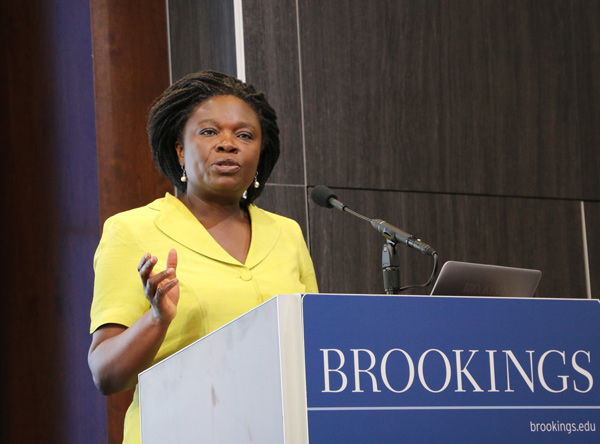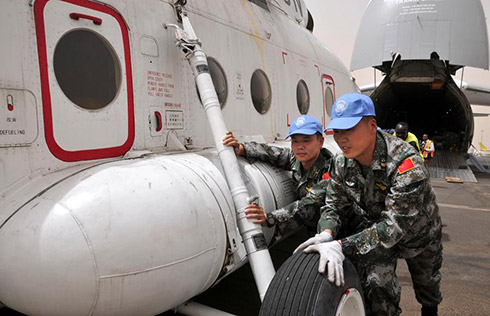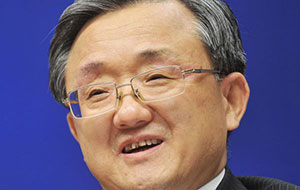World Bank confident in AIIB
 |
|
Victoria Kwakwa, vice-president for East Asia and Pacific Region of the World Bank, talks about development lending in the Asia Pacific region in a seminar held at the Brookings Institution in Washington on Monday. Chen Weihua/China Daily |
The Asian Infrastructure Investment Bank (AIIB) is upholding high environmental and social standards, according to a World Bank official.
Victoria Kwakwa, vice-president for East Asia and Pacific Region of the World Bank, said on Monday that the standards set by the AIIB are just like the standards of other multilateral development banks.
"A lot of it was input by former World Bank staff, so they have very high standards," she said of the AIIB.
Both the World Bank and the Asian Development Bank worked well with the AIIB, she said.
"We don't see any issues in the work we do with them or their commitment to keeping high standards," Kwakwa told China Daily on Monday after a talk on development lending in the Asia Pacific held at the Brookings Institution in Washington.
She said that the World Bank is working in strong partnership with the Beijing-headquartered AIIB and Shanghai-headquartered New Development Bank (NDB) in leveraging each side's competitive advantage.
The World Bank and the AIIB have co-financed infrastructure in Indonesia. Kwakwa said the two are working on upcoming projects in the Philippines and other East Asian nations.
The Manila Times, quoting the Philippine department of finance, reported on Monday that the AIIB this week may approve $150 million to co-finance with the World Bank a Philippine project to improve flood management in Metro Manila.
Kwakwa said that the World Bank has also been discussing some projects with the NDB although they are not yet finalized.
To Kwakwa, having more multilateral development banks is just a reflection of the multilateral world today. "It brings more developing financing to the table in the context that a lot more is needed than traditional sources can provide," she said, adding that more partners coming together makes it possible to tackle complex and large operations, sharing the risk and burden.
Unlike some who worry about a race to the bottom with the new arrivals, Kwakwa said she doesn't see this as a strong possibility because there is so much to do and so much need for financing.
"It's a theoretical possibility, but highly unlikely," she said of a race to the bottom.
Hongying Wang, an associate professor of political science at University of Waterloo, said there is room for the new development banks to complement the legacy banks given the huge need in infrastructure financing in the Asia Pacific.
"I have no doubt that with AIIB and NDB, China will follow most of these practices," she said.
chenweihua@chinadailyusa.com



















